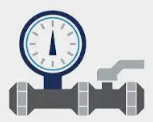In the efficiency-driven world of manufacturing operations, where precision and reliability are paramount, the purity of compressed air – a commonly used resource in many industries – is a key measurable. Compressed Dry Air (CDA) serves as a lifeline for various processes, ensuring the integrity and efficiency of machinery. However, the quality of this seemingly invisible ally is often underestimated.
Let us delve into the critical role of Compressed Air Quality Testing, with a focus on cleanroom testing in Singapore, and the significance of Temperature Mapping services in maintaining optimal manufacturing conditions.
The Significance of Compressed Dry Air (CDA) in Manufacturing
Compressed Dry Air (CDA) can be considered the unsung hero of manufacturing operations. From powering pneumatic tools to ensuring the cleanliness of controlled environments, CDA plays a pivotal role in maintaining the precision and reliability of machinery.
In the pharmaceutical and electronics industries, where cleanroom environments are the norm, the quality of compressed air becomes even more critical. While it quietly powers through pipelines, its quality can have a significant impact on your operational output.
Prevention of Equipment Corrosion
One of the primary advantages of using compressed dry air in manufacturing operations is its role in preventing corrosion within equipment. When air contains moisture, especially in the form of water vapour, it can lead to the rusting and degradation of components in pneumatic systems and tools. By employing compressed dry air, manufacturers safeguard their equipment, ensuring it remains corrosion-free and operates at peak performance levels.
Enhanced Equipment Performance
Pneumatic tools, widely used in manufacturing, rely on compressed air for their operation. Moisture within the compressed air can adversely affect the performance of these tools, leading to malfunctions and reduced efficiency. Dry air prevents the formation of rust and scale within the tool mechanisms, ensuring they function smoothly and consistently.
Improved Product Quality
In industries such as food processing, pharmaceuticals, and electronics, where product quality standards are stringent, the use of compressed dry air becomes imperative. Moisture in the air can contaminate products and compromise their integrity. By employing compressed dry air, manufacturers can maintain the desired environmental conditions, ensuring that the quality of their products meets stringent standards.
Prevention of Freezing in Cold Environments
In manufacturing operations that take place in cold environments or involve the use of compressed air at low temperatures, moisture in the air can lead to freezing issues. Ice buildup within the air lines can obstruct the flow of air and disrupt operations. By removing moisture from the compressed air, manufacturers prevent the risk of freezing, ensuring continuous and reliable performance, even in challenging environmental conditions.
Energy Efficiency
Compressed air systems are notorious for their energy consumption in manufacturing facilities. Moisture in the air exacerbates this issue, as water vapour requires additional energy to compress. Dry air, on the other hand, reduces the energy demand of the compression process, contributing to overall energy efficiency.
Compliance with Industry Standards
Various industries have stringent standards and regulations governing their manufacturing processes. Complying with these standards often requires maintaining specific levels of air quality, including the dryness of compressed air. Whether it’s Good Manufacturing Practice (GMP) in pharmaceuticals or ISO standards in general manufacturing, using compressed dry air ensures that manufacturers meet the necessary compliance criteria.
Cleanroom Testing in Singapore
In the stringent landscape of manufacturing, particularly in industries where cleanrooms are a necessity, the importance of maintaining optimal air quality cannot be overstated. Cleanroom testing in Singapore has become synonymous with setting the standard for manufacturing excellence. It goes beyond routine assessments, delving into the microscopic realm to ensure that every particle is in the right place – or more importantly, not in the wrong place!
Temperature Mapping Services
Temperature mapping services are a crucial component of ensuring the reliability of manufacturing operations, especially in cleanroom environments. These services involve the systematic measurement and mapping of temperature variations within a space. In the world of precision manufacturing, where even slight temperature fluctuations can have devastating cascading effects, this becomes a critical aspect of operational efficiency.
Temperature mapping services are not just about identifying hot and cold spots within a manufacturing facility. They go beyond, unveiling variations in temperature that might otherwise go unnoticed. This level of precision is essential, especially in industries where the slightest deviation from optimal conditions can compromise product quality.
The Integrated Approach: Cleanzones’ Expertise
Cleanzones takes a holistic approach to ensure the reliability of manufacturing operations. Our expertise in compressed air quality testing seamlessly integrates with our range of cleanroom services.
We understand that the air quality in cleanrooms is interconnected with the quality of compressed air. Our comprehensive testing services cover every aspect, from air purity to the microbial environment, ensuring a holistic approach to manufacturing excellence.
Ready to optimise your manufacturing operations? Contact Cleanzones today for comprehensive compressed air quality testing, temperature mapping services, and cleanroom testing in Singapore.

